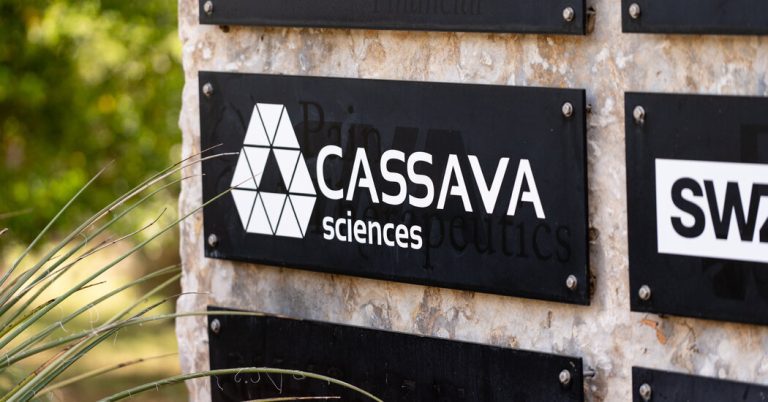A scientist whose research was at the center of controversy over an Alzheimer’s drug candidate has been charged with fraud.
A federal grand jury on Thursday indicted Hoau-Yan Wang, a professor at the City College of New York, on charges of falsifying data to obtain grants totaling about $16 million from the National Institutes of Health.
The studies of Dr. Wang supported research into a diagnostic test for Alzheimer’s disease and simufilam, a drug in advanced clinical trials. Simufilam’s maker, Cassava Sciences, a Texas-based pharmaceutical company, said the drug improves cognitive function in Alzheimer’s patients.
Alzheimer’s disease affects about six million Americans—a number expected to double by 2050—and promising treatments are generating enormous excitement. Cassava’s stock has soared after each round of reported results from its tests.
However, some scientists had publicly disparaged the drug, saying its mechanism of action and supposed effects were improbable. Some went further and accused the company and Dr. Wang, its scientific advisor, of manipulating the results. Several journals retracted or attached statements of concern to publications by Dr. Wang and a co-author on Cassava.
After the indictment was announced on Friday, Cassava stock plummeted to its lowest price since October 2020.
Remi Barbier, Cassava’s founder and CEO, did not immediately respond to a request for comment. But in a statement posted on its website, the company said the work of Dr. Wang was “related to the early development phases of the company’s drug candidate and diagnostic test.”
“Dr. Wang and his former public university medical school had no involvement in the company’s Phase 3 clinical trials for simufilam,” the statement said.
A company reporter pointed to a September 2023 publication that it said provided “independent verification of the science.”
An investigation by the City University of New York, of which the college is a part, struggled for months to gain access to Dr. Wang. Ultimately, the investigative committee members concluded that Dr. Wang was “reckless” in failing to preserve or provide original data, an offense that “constitutes significant investigative misconduct.”
“The university has and will continue to cooperate to the fullest extent with the federal government’s investigation until the matter is resolved,” a university spokesperson said in a statement.
Dr. Wang did not respond to requests for comment about the indictment.
Dr. Wang is now accused of falsifying data in grant applications spanning nearly eight years ending in April 2023, according to the Justice Department. Some of the grants funded the salary of Dr. Wang and laboratory research at the university.
Federal prosecutors charged Dr. Wang with multiple counts of fraud and misrepresentation. If convicted, he faces a maximum sentence of 55 years in prison.
The FBI’s Washington office is investigating the case. The indictment was issued in Maryland, where the NIH is based.
In an emailed statement, Renate Myles, an NIH spokeswoman, said the agency “does not discuss grant compliance evaluations for specific funded awards, recipient institutions or supported researchers.”
“However, NIH takes research misconduct very seriously,” he said. “NIH promptly and carefully reviews all allegations of research misconduct received.”




